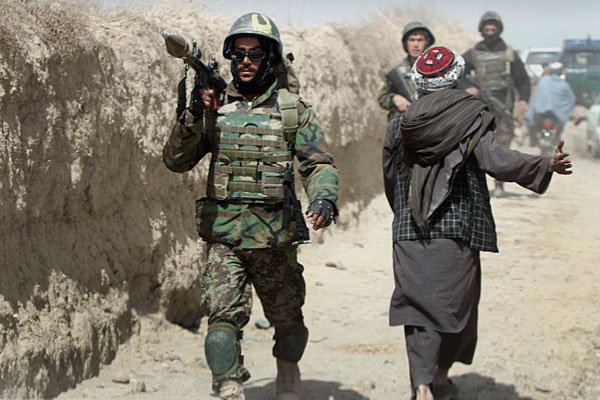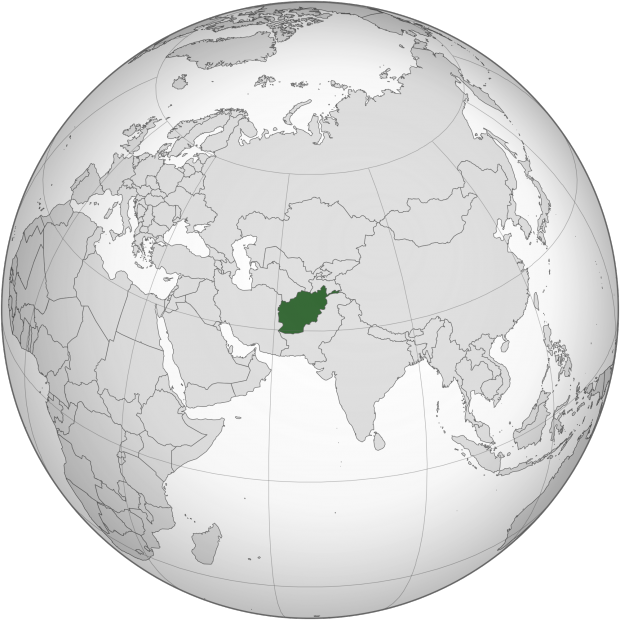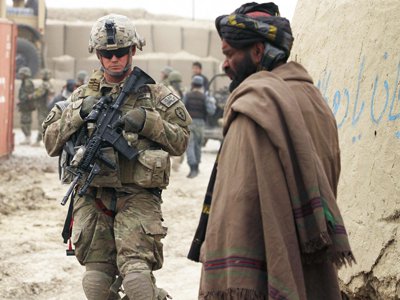Will Afghanistan Become the Next Proxy War?
 Afghanistan turned into a matter of “prestige” during the War on Terror initiated by the George W. Bush administration. In other words, the “Enduring Freedom Operation” was the first indication that the USA was becoming a global hegemon. The US’ involvement in Afghanistan was unrivaled and different from the “Great Game” of the 19th century—it was to show its own national power to the world.
Afghanistan turned into a matter of “prestige” during the War on Terror initiated by the George W. Bush administration. In other words, the “Enduring Freedom Operation” was the first indication that the USA was becoming a global hegemon. The US’ involvement in Afghanistan was unrivaled and different from the “Great Game” of the 19th century—it was to show its own national power to the world.
Russia’s Interest in Afghanistan
While the question of why the Soviet Army was sent to Afghanistan is frequently questioned by Russian thinkers, it is hard to say that there is remorse regarding the fallacy of the decision made by the USSR to intervene in Afghanistan. Russians think the USSR failed in Afghanistan because of their hasty method of intervention. It was significant for Putin to have praised the intervention in Afghanistan during his visit to see Afghan war veterans for the Russian Afghanistan strategy. It can be said that Russian interest in Afghanistan is loaded with symbolic values, and its tendency to regard Afghanistan as the place where it will once again present itself in world politics is on the rise. Undeniably, Russia regards the USA and NATO as the responsible parties for what happened in Afghanistan. Russian donation of 10,000 Kalashnikov rifles to Afghanistan immediately after NATO forces was pulled out in 2013 and its recent collaboration with Taliban to “fight against ISIS” by exchanging knowledge and intelligence are important to fully understand Russian interest in Afghanistan.
Chinese Regional Politics on the Context of “One Belt, One Road”
An 890 billion dollar budget has been allotted to the “One Belt, One Road” project with the leadership of the Chinese Ministry of Development. Through this project, China generated great anticipation and rivalry among the countries of the region. The 97 km border between China and Afghanistan has caused China to regard the developments in Afghanistan as part of its national security agenda. Afghanistan, on the one hand, thinks that China is increasing its influence in the region and that it will not be possible to attain domestic peace without the involvement of China. Particularly, the activity of Chinese companies within the Afghan infrastructure and energy sector is what increases China’s prestige in Afghanistan.
The Afghanistan Government and Taliban Peace Talks
 While some wanted to establish talks with the Taliban, there were also other members who were against all such efforts at communication. The Taliban regards the USA and the Afghanistan government as the prime actors responsible for what happened in Afghanistan. In this setting, it can be said that it is futile to expect positive results from establishing talks. The fact that the US acted without a long-term strategy regarding Afghanistan is another reason preventing peace talks. As the opium trade in Afghanistan exceeds 3 billion dollars, establishing talks without determining the role Taliban will assume in the drug trade will only ensure these talks will be doomed from the start. Indeed, the political bureau of the Islamic Emirate of Afghanistan (opened in Qatar in 2013 to execute peace talks by Taliban) was closed down after an ultimatum by the Afghanistan government. It can be speculated that peace talks with Taliban as a consequence of the United States’ will regarding the issue is devoid of reality; another example of Obama’s “optimism”.
While some wanted to establish talks with the Taliban, there were also other members who were against all such efforts at communication. The Taliban regards the USA and the Afghanistan government as the prime actors responsible for what happened in Afghanistan. In this setting, it can be said that it is futile to expect positive results from establishing talks. The fact that the US acted without a long-term strategy regarding Afghanistan is another reason preventing peace talks. As the opium trade in Afghanistan exceeds 3 billion dollars, establishing talks without determining the role Taliban will assume in the drug trade will only ensure these talks will be doomed from the start. Indeed, the political bureau of the Islamic Emirate of Afghanistan (opened in Qatar in 2013 to execute peace talks by Taliban) was closed down after an ultimatum by the Afghanistan government. It can be speculated that peace talks with Taliban as a consequence of the United States’ will regarding the issue is devoid of reality; another example of Obama’s “optimism”.
The Taliban-ISIS Rivalry in Afghanistan
When Taliban was formed it was announced that their reason d’être was to establish an ideal Islamic society in Afghanistan. Taliban, by operating a social message and punishment system, tried to keep its public support alive. ISIS on the other hand, apart from Taliban, sets forth a relatively broader envision of the world. ISIS, by the implementation of the Caliphate, aims to obtain global political power. ISIS has become the first organization to be approved in the East of Afghanistan and the first to challenge Taliban in Afghanistan. Besides, high unemployment in Afghanistan and the pensions offered by ISIS to its militants worries Taliban of losing its social support. ISIS forbids the plantation of drugs in the areas it dominates in Afghanistan.
 In a final analysis, as a weak state, Afghanistan does not have control of even 30% of its own soil. Even though its land is rich with natural resources, it is the nation’s fragile political structure that allows it to continue becoming a war zone for great powers and radical organizations. Indeed, ISIS found itself a base in Afghanistan. The prime aim of ISIS in Afghanistan is to call the attention of the rest of the world in Afghanistan and away from Iraq and Syria where IS lost its power. Despite all, Russia feels differently from the USA regarding the future of Afghanistan, especially after the Ukraine and Syria crises. And in this context, it can be said that the indecisive Afghanistan policy of the USA played for the benefit of Russia.
In a final analysis, as a weak state, Afghanistan does not have control of even 30% of its own soil. Even though its land is rich with natural resources, it is the nation’s fragile political structure that allows it to continue becoming a war zone for great powers and radical organizations. Indeed, ISIS found itself a base in Afghanistan. The prime aim of ISIS in Afghanistan is to call the attention of the rest of the world in Afghanistan and away from Iraq and Syria where IS lost its power. Despite all, Russia feels differently from the USA regarding the future of Afghanistan, especially after the Ukraine and Syria crises. And in this context, it can be said that the indecisive Afghanistan policy of the USA played for the benefit of Russia.
Namely, in 2014, even when the US Air Force conducted 13,000 sorties in Afghanistan despite all the uncertainty, the number dropped to 2000 sorties in 2016. Though radical structuring continues to take root in the region, the USA continues to make the same mistakes it did in Iraq by leaving behind a “weak state” next to radical groups. Current US P0esident Donald Trump may follow a different path regarding the future of Afghanistan than the one followed by the Obama administration. However, it is not correct to assume that the US will be successful in Afghanistan this time around. This is because similar to Obama, Trump also does not have a long-term foreign policy regarding the issue of Afghanistan. Also, within the last days of 2016, there have been a number of meetings to stabilize Afghanistan—all of which the US did not attend. In this direction, in a joint meeting conducted in Moscow by representatives from Russia, China, and Pakistan, concerns regarding the power ISIS attained in Afghanistan were voiced. After all, while Pakistan brought together authorities from Afghanistan and Taliban in the last days of 2016, no tangible result was obtained. In short, even though countries of the region reflect each other in order to maintain domestic peace in Afghanistan, time will tell whether these reflections will be enough to prevent the spread of the Iraqi and Syrian proxy wars towards Afghanistan.
























































